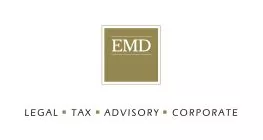Maltese tax law provides for what is known as a 'Step-Up' provision to persons, both individuals and companies, who acquire residence or domicile in Malta with respect to their assets held outside Malta prior to their change in residence or domicile, subject to the condition that such persons were at no time residence or domiciled in Malta prior to the change.
The said provision entitles eligible persons to claim a step up in the tax base cost of their foreign held assets. Upon change in residence or domicile to Malta, the assets are revalued at the market value at the time the change takes place.
Transfer of Assets following the change in residence or domicile to Malta
The re-valued cost, which should be notified to the Maltese tax authorities, will constitute the new acquisition cost of the assets when calculating any subsequent gain on the eventual disposal of the said asset. This will therefore reduce the taxable gains (if any) upon the subsequent transfer of the asset.
By way of an example, if a person who acquires residence in Malta had acquired an asset held outside Malta at a cost of Eur10, 000, the asset is revalued at Eur15,000 which is the market value of the asset at the date of change in residence. This means that upon sale of the pertinent asset, the person who changed his residence to Malta, would be subject to tax on the difference between the transfer value and the cost of acquisition of the asset. Thus, if the asset is later sold for Eur25, 000, the gain which would be taxable in Malta would amount to Eur10,000 i.e. Eur25,000 less the Eur 15,000 and not Eur15,000 i.e. Eur25,000 less Eur10,000.
The country in which the asset is situated would retain the right to tax the gain resulting from the difference between the market value of the asset at the time of change of residence or domicile and the actual cost of acquisition. In this example, the country in which the asset is situated will tax the gain of Eur5,000, which is the difference between Eur15,000 and Eur10,000. It is likely that the foreign country (especially if an EU Member State) would only tax the gain when the asset is disposed of. It is therefore unlikely that the foreign country would tax the unrealized gain at the time the person changes his residence or domicile to Malta, especially in view of the fact that the asset remains in the foreign country.
Wear and Tear Allowance (or Capital Allowances)
Capital allowances are allowable deductions to take into account the wear and tear of business assets which are used in a trade or business. They are calculated on the stepped-up value of the assets thus reducing the overall tax charge.
Election for Revaluation of Assets
In order for a person who acquires residence or domicile in Malta to have the assets revalued at market value, he must make 'an election by notice in writing to the Commissioner' which basically requires the submission of an assets-valuation confirmed through an authorised professional independent person or authority.
Such an election must be made by the end of the year (in the case of companies it is the financial year) following the year in which the person changes his residence or domicile to Malta.
The content of this article is intended to provide a general guide to the subject matter. Specialist advice should be sought about your specific circumstances.

